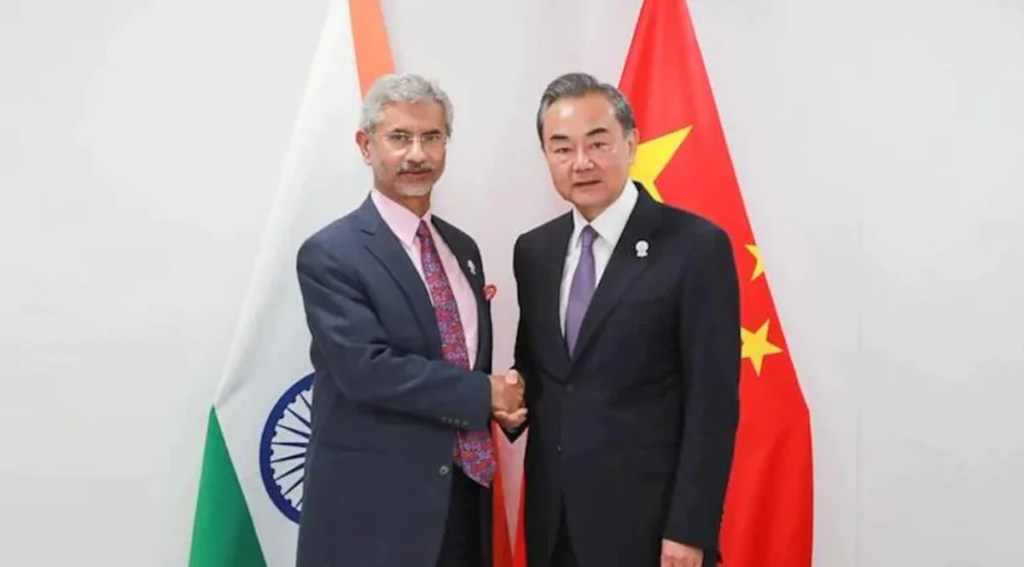The Chinese foreign minister Wang Yi who came unannounced on Thursday evening had two long meetings with National Security Advisor Ajit Doval and external affairs minister Dr S Jaishankar. The focus of both meetings was on early resolution of the pending friction areas and to maintain peace and tranquility along the borders in eastern Ladakh.
“Beijing is seeking to outreach to New Delhi to ensure that the existing situation does not deteriorate further at the Ladakh border. Breaking a deadlock and reaching an agreement on de-escalation at Ladakh has not progressed despite several rounds of military and political dialogue,” opines Prof Rajan Kumar, School of International Studies, JNU.
Experts Views on the expectations from the unannounced visit
Sharing his views with Financial Express Online, Prof Rajan Kumar, says, “Chinese Foreign Minister Wang Yi’s visit to New Delhi was not announced officially either by China or India. His statement on Kashmir at the OIC Summit earlier was criticised by India as ‘uncalled for’ and something that damages the reputation of the country making such a statement.”
“Wang Yi’s unannounced arrival to New Delhi, nonetheless, should be considered significant for three reasons: first, there is a military standoff between India and China at the Ladakh border; second, the BRICS summit meeting will happen in China this year where PM Modi would be seen standing with both Xi Jinping and Vladimir Putin; and finally, the ongoing crisis in Ukraine where both the countries have abstained from voting against Russia,” Prof Rajan opines.
China’s concern
According to Prof Rajan, “It is concerning because India stated repeatedly that border standoff and business as usual cannot continue. Beijing must be wary of India’s participation and stance at the upcoming BRICS summit in China. It wants to ensure that the summit takes place without any hiccups and it does not become a hostage of border conflict in Ladakh or the ongoing crisis in Ukraine.”
Also, “Beijing is aware of the pressure from the West on New Delhi to distance itself from Russia. It must be a serious cause of concern for China. China would not like to alter the existing balance in the region. Both Beijing and New Delhi have refrained from either condemning Russia or voting against it in the multilateral institutions,” the JNU Prof observes.
In his opinion, “Today’s meeting provided an opportunity for the two countries to develop common strategies on the issues of Ukraine, especially concerning, humanitarian crisis, ceasefire and negotiations. They have the capacity to play a much bigger role than what they are doing at the moment.”
View of an Indian Army Veteran
“Visit by the Chinese Foreign Minister is in keeping with the transforming global geo- politics. It is very clear that China – Russia are aligned on one side of the spectrum and on the other side are the US and European Union. And this is the by- product of the Ukraine conflict,” opines Col Rajinder Singh (Retd).
According to the Indian Army Veteran, “India is in demand by both sides. India’s abstaining itself in the UNSC voting against Russia has clearly sent a message to two power blocs. China’s biggest hurdle in global conquest is India. It now sees a chance to mend fences temporarily with India.”
“Therefore, the visit by the Chinese Foreign Minister is to mollycoddle India to draw it away from the Quad,” he adds.
“Change of stance of China is surprising because just the other day, he had talked on Kashmir in the OIC meeting in Pakistan. India had strongly reacted —— yet he has come. His meeting the NSA is an indication that he might have some tempting offer on Eastern Ladakh to lure away India,” Col Rajinder Singh (Retd), states.
Should India fall for the bait?
In his view, India should move with caution. China cannot be trusted like Russia.
“There might be even some initial proposals regarding economic arrangements to find an alternative to Dollar as a reserve Currency or even something on the SWIFT —- say ACU. China is very keen to push Rinminbi as an alternative to Dollar,” says Col Rajinder Singh (Retd).

